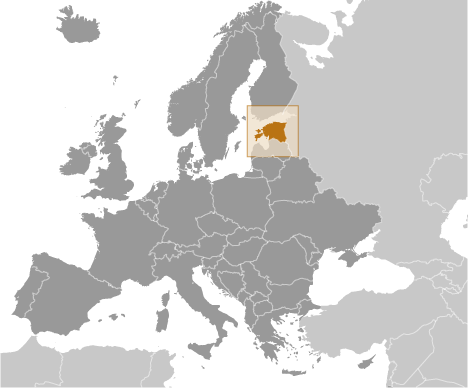HISTORICAL BACKGROUND
Article 44 of the Estonian Constitution states:
(1) Everyone shall have the right to freely receive information circulated for general use. (2) At the request of Estonian citizens, and to the extent and in accordance with procedures determined by law, all state and local government authorities and their officials shall be obligated to provide information on their work, with the exception of information which is forbidden by law to be divulged, and information which is intended for internal use only. (3) Estonian citizens shall have the right to become acquainted with information about themselves held by state and local government authorities and in state and local government archives, in accordance with procedures determined by law. This right may be restricted by law in order to protect the rights and liberties of other persons, and the secrecy of children's ancestry, as well as to prevent a crime, or in the interests of apprehending a criminal or to clarify the truth for a court case. (4) Unless otherwise determined by law, the rights specified in Paragraphs (2) and (3) shall exist equally for Estonian citizens and citizens of other states and stateless persons who are present in Estonia.(1)
The Public Information Act (PIA) was approved in November 2000 and took effect in January 2001.(2) The Act covers state and local agencies, legal persons in public law and private entities that are conducting public duties including educational, health care, social or other public services. Any person may make a request for information and the holder of information must respond within five working days. Requests for information are registered. Fees may be waived if information is requested for research purposes.
The Act does not apply to information classified as a state secret. Internal information can be withheld for five years. This includes information that is: relating to pending court cases; collected in the course of state supervision proceedings; would damage the foreign relations of the state; relating to armaments and location of military units; would endanger heritage or natural habitats; security measures; draft legislation and regulations; other documents not in the register; and personal information. Information relating to public opinion polls, generalized statistics, economic and social forecasts, the environment, property and consumer-product quality cannot be restricted.
The Act also includes significant provisions on electronic access and disclosure. Government department must maintain document registers. National and local government departments and other holders of public information have the duty to maintain websites and post an extensive list of information on the Web including statistics on crime and economics; enabling statutes and structural units of agencies; job descriptions of officials, their addresses, qualifications and salary rates; information relating to health or safety; budgets and draft budgets; information on the state of the environment; and draft acts, regulations and plans including explanatory memorandum. They are also required to ensure that the information is not "outdated, inaccurate or misleading." In addition, e-mail requests must be treated as official requests for information. Public libraries were required to have access to computer networks by 2002.
The Act is enforced by the Data Protection Inspectorate.(3) The Inspectorate can review the procedures of the public authorities and receive complaints. Officials can demand explanations from government bodies and examine internal documents. The Inspectorate can order a body to comply with the Act and release documents. The Inspectorate has made inquiries with data holders and believes that the act is generally followed although in 15 percent of the cases there was non-compliance and five cases of a breach of the PIA.(4) In 2004, the PIA investigated 34 complaints about the Act. The body can appeal to an administrative court. There have been only a few court cases so far.
A review by the Council of Europe GRECO committee found that the Act was successful in promoting access to information:
The GET found that the rules providing transparency of the Estonian public administration are satisfactory. It was confirmed to the GET that the Public Information Act had brought dramatic changes, such as a broad information flow available on-line (electronically), facilitated access to public documents, press attachés in every Ministry etc. The obligations on authorities under the Public Information Act not only to provide information, but also to assist the public in accessing documents, are important features of this law. Furthermore, there is a practice of public consultation.(5)
The State Secrets Act controls the creation, use and dissemination of secret information.(6) It was amended in August 2001 to comply with NATO requirements. It sets four levels of classification and information can be classified for up to fifty years. The Penal Code prohibits the intentional or negligent disclosure of state secrets or "internal information."(7) Foreign Minister Kristiina Ojuland was fired in 2005 after an audit found that 91 secret documents were missing.(8) Defense Minister Margus Hanson resigned in November 2004 following the theft of a briefcase of containing secret documents from his home. He was fined 6,250 euros in November 2005.
The Personal Data Protection Act allows individuals to obtain and correct records containing personal information about themselves held by public and private bodies. It is enforced by the Data Protection Inspectorate.(9)
The Archives Act requires that public records are transferred to the Archive after twenty years.(10)
Estonia signed the Aarhus Convention in June 1998 and ratified it in August 2001. The PIA applies to access environmental information. The Environmental Register Act requires the collection in a database of detailed information regarding the environment including pollution, waste and radioactive waste, genetically modified organisms, natural environmental factors, permits and other materials.(11) The information is public unless its release would endanger public safety, cause environmental damage, or contains intellectual property secrets. There are also a variety of other environmental laws that provide for collection and disclosure of environmental information.(12)
2004 freedominfo.org Global Survey Results - Estonia
Notes
1. Constitution of Estonia, http://www.oefre.unibe.ch/law/icl/en00000_.html
2. Public Information Act, Passed 15 November 2000. RT I 2000, 92, 597. http://www.legaltext.ee/text/en/X40095K2.htm
3. Homepage: http://www.dp.gov.ee/?lang=en
4. Council of Europe, Responses to the Questionnaire on National Practices in Terms of Access to Official Documents - Estonia, Sem-AC(2002)002 Bil, 18 November 2002, p.154.
5. Second Evaluation Round - Evaluation Report on Estonia Greco Eval II Rep (2003) 4E 2 July 2004.
6. State Secrets Act RT1 I 1999, 16, 271. http://www.legaltext.ee/text/en/X30057K6.htm. See also Approval of Procedure for Protection of State Secrets and Procedure for Issue of Permits for Access to State Secrets, Government of the Republic Regulation No. 216 of 8 July 1999, RT I 1999, 61, 622. http://www.legaltext.ee/text/en/X40004K4.htm
7. Penal Code §§241-243.
8. Estonian foreign minister sacked over missing documents, Agence France Press, 10 February 2005.
9. Personal Data Protection Act. RT1 I 2003, 26, 158, 12 February 2003. http://www.legaltext.ee/text/en/X70030.htm
10. The Archives Act. RT I 1998, 36/37, 552. http://www.legaltext.ee/text/en/X2058K5.htm
11. Environmental Register Act, Passed 19 June 2002 (RT I 2002, 58, 361). http://www.legaltext.ee/text/en/X60041.htm
12. See Council of Europe report, p.121.





















